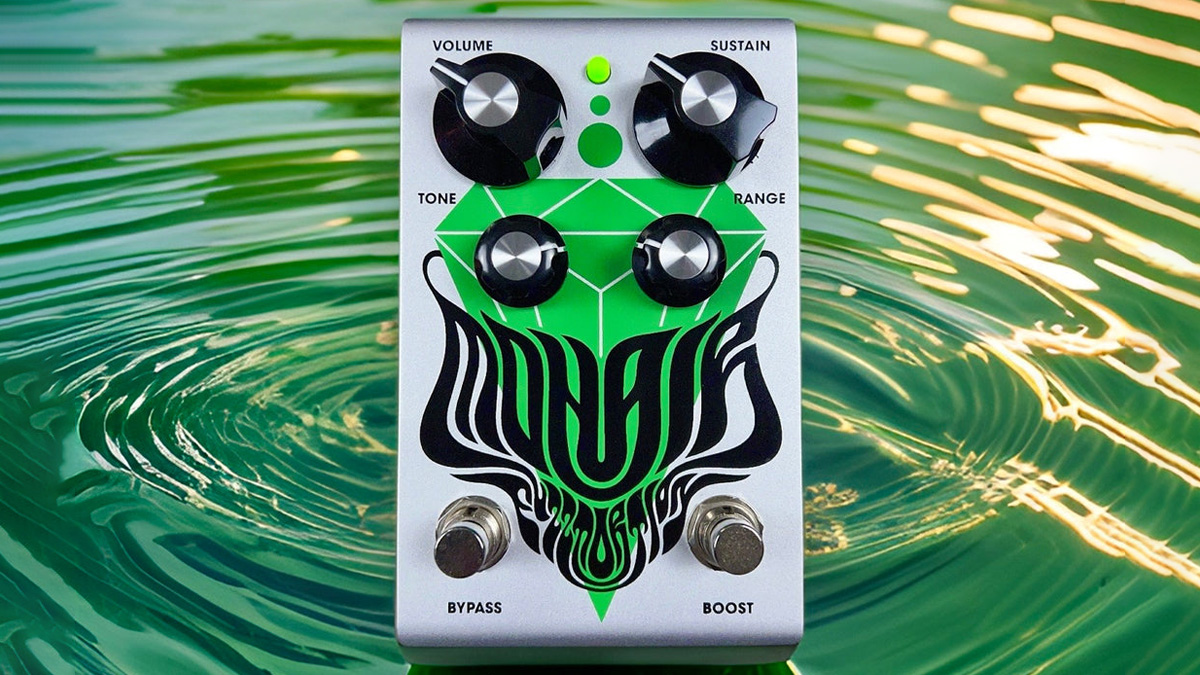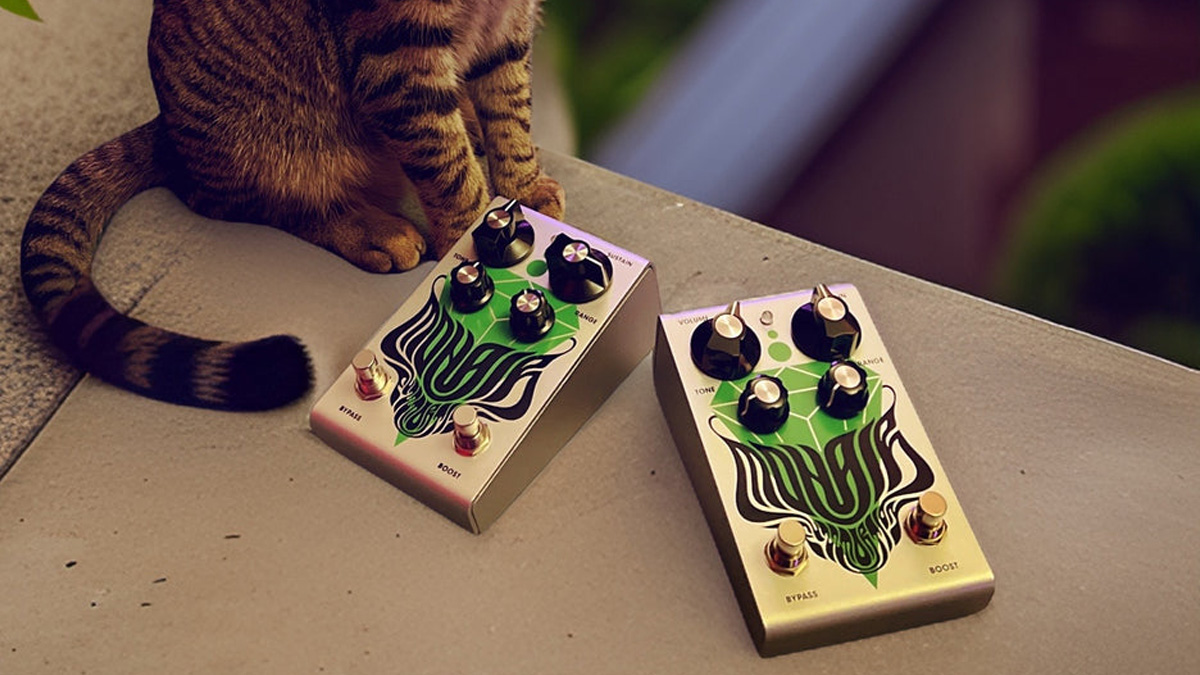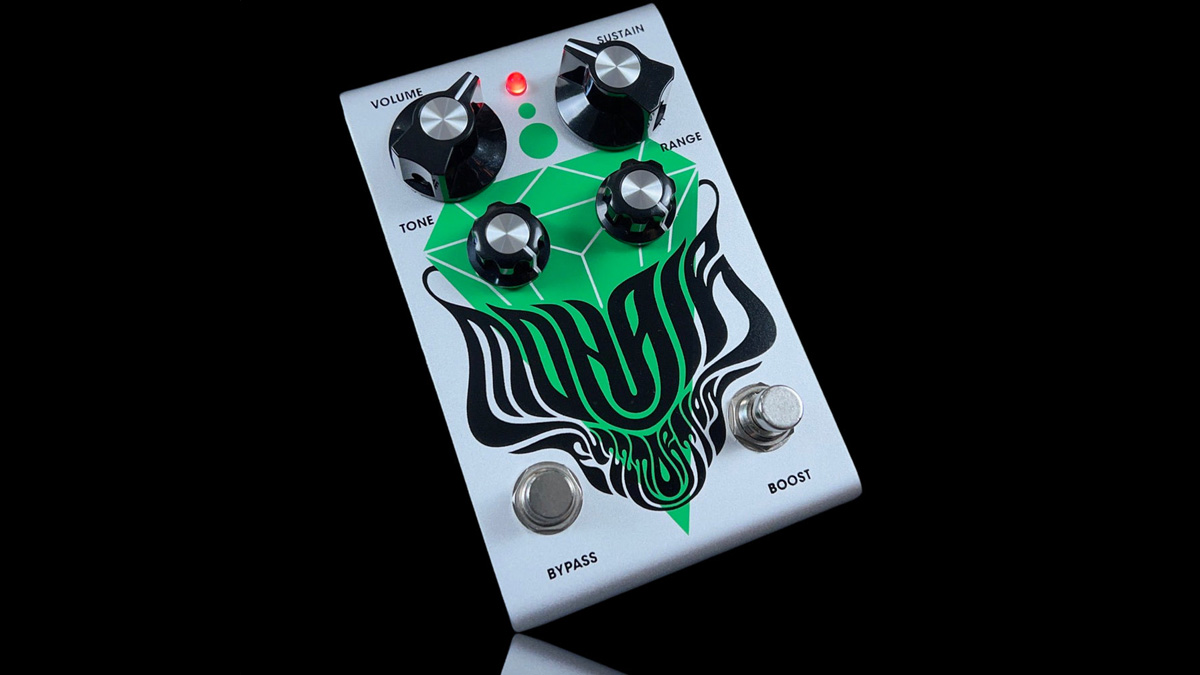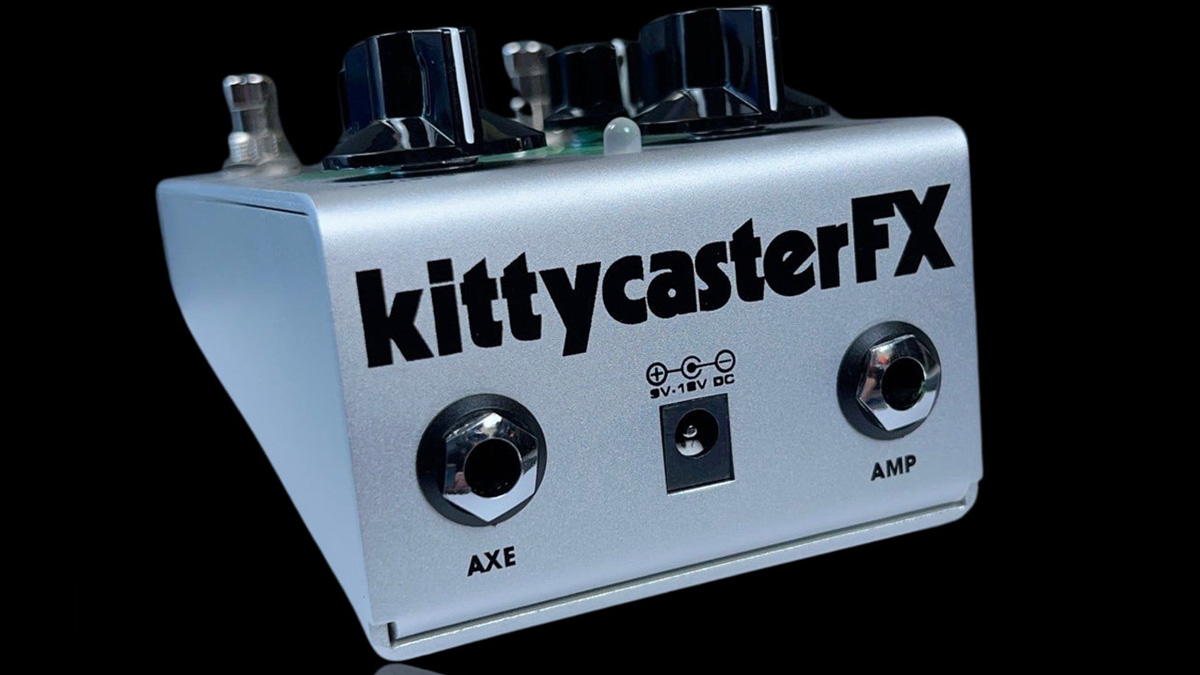
KittycasterFX has launched the Mohair Fuzzstortion, a high-gain fuzz pedal that presents a Muff-style circuits as you have never heard it before, with a footswitchable Rangemaster-style booster circuit in front making for a high-powered twofer.
Headed up by guitar effects pedal guru Howard Gee, formerly of Catalinbread, Kittycaster made its debut in April 2022 with the launch of the Tremdriver preamp/harmonic tremolo and the Groovy Wizard fuzz – the latter, which would clean up at the turn of your electric guitar's volume control, covered all of Gee's gain needs.
Or so he thought. In the deep dive video, where he talks through the design of the Mohair and demos its sounds, he admitted that curiosity got the better of him. What if he had a high-gain option on the menu?
Speculating on what would break next from the Portland-based pedal company – this third pedal has been long in coming – those who know Gee might not have had this type of pedal on their bingo card. Gee is not a fan of the four-transistor Muff-style circuit.
“They’re very compressed,” he says. “Your picking attack is blunted off and it certainly doesn’t clean up from the volume knob of the guitar at all. It just sounded like you were playing through a brickwall limiter. But I sat down one day, I’m like, ‘You know what I’m going to breadboard the thing, and see if I can roll one that I actually like.’”
That set Gee off on a period of discovery. There are no shortage of circuits to pore over. This is a path well-travelled by legions of stompbox designers. Gee took the basic circuit, started throwing together, “and I found I was able to get it to breathe,” he says.
I ended up with a pedal that was simple – four knobs, two footswitches – but with a super wide range of tones and playing responses
Where Gee took it was close to the Ram’s Head Big Muff style of fuzz but there was some fine-tuning to be done – namely so it would stick out in a mix. That’s when the idea for the treblebooster came in. Sticking that in front, and making it footswitchable, was the answer.
“I ended up with a pedal that was simple – four knobs, two footswitches – but with a super wide range of tones and playing responses available while still retaining an open quality with a bounce to the dynamics,” says Gee.

Those footswitches activate the pedal and the boost respectively. There are two oversized dials for Volume and Sustain, with Tone and Range controls.
Range is only active in Boost mode, in which the LED illuminates red and this gives you a variable high-pass filter to change the low-frequency response – the further clockwise you turn it, the thicker the sound gets. Tone controls frequency response in both boosted and non-boosted modes.


All of which gives you sweep of sounds that takes you from “early ‘70s classic rock leads to to later '70s treble-boosted overdriven amp riffs to ‘90s shoegaze walls of sound.” Doom metal guitar players will get plenty of joy from its more extreme settings.
The Mohair features five silicon transistors in a circuit that is put together of discrete, through-hole components.
Like its siblings, it comes in a wedge-style enclosure and is designed and built in Portland, Oregon. Priced £243 / $299, it is available now. See KittycasterFX for more details.







